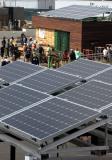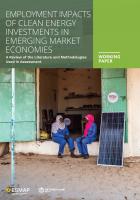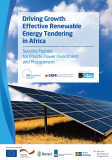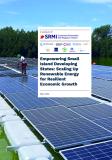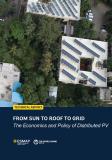Publications
Significant scale-up of clean energy, such as renewable energy and energy efficiency, is the most important component of worldwide efforts to address climate change and increase energy access. As clean energy makes a growing contribution to the total energy supply, as countries undertake their energy transitions, it is also expected to create millions of jobs. This review is part of an investigation into how the global energy transition - the move away from fossil fuels, which involves the adoption of new technologies and new service delivery models in the sector can contribute to job creation and support economic activity while advancing the global decarbonization agenda. The objective of this literature review is to understand how existing academic and policy work has assessed the impact of energy-transition-related policies, regulations, and investments on job creation, wages, and other employment-related outcomes. This review covers studies of energy sector jobs as well as jobs created in upstream sectors resulting from energy-transition-related investments and policy changes. The review also includes studies of wider, often economywide, “induced” employment effects. In particular it focuses on the impact of electrification programs using distributed renewable generation, since such programs make it possible to establish causality in job creation more clearly than clean energy projects contributing additional power to existing grids.
Explore More
Case Studies
Saussay, Aurélien; Dobrotková, Zuzana; Pargal, Sheoli.
Employment Impacts of Clean Energy Investments in Emerging Market Economies: A Review of the Literature and Methodologies Used in Assessment (English). Washington, D.C. : World Bank Group. http://documents.worldbank.org/curated/en/099012324075013012/P1764381cbc4aa07e1ad41116014a5eb6de
